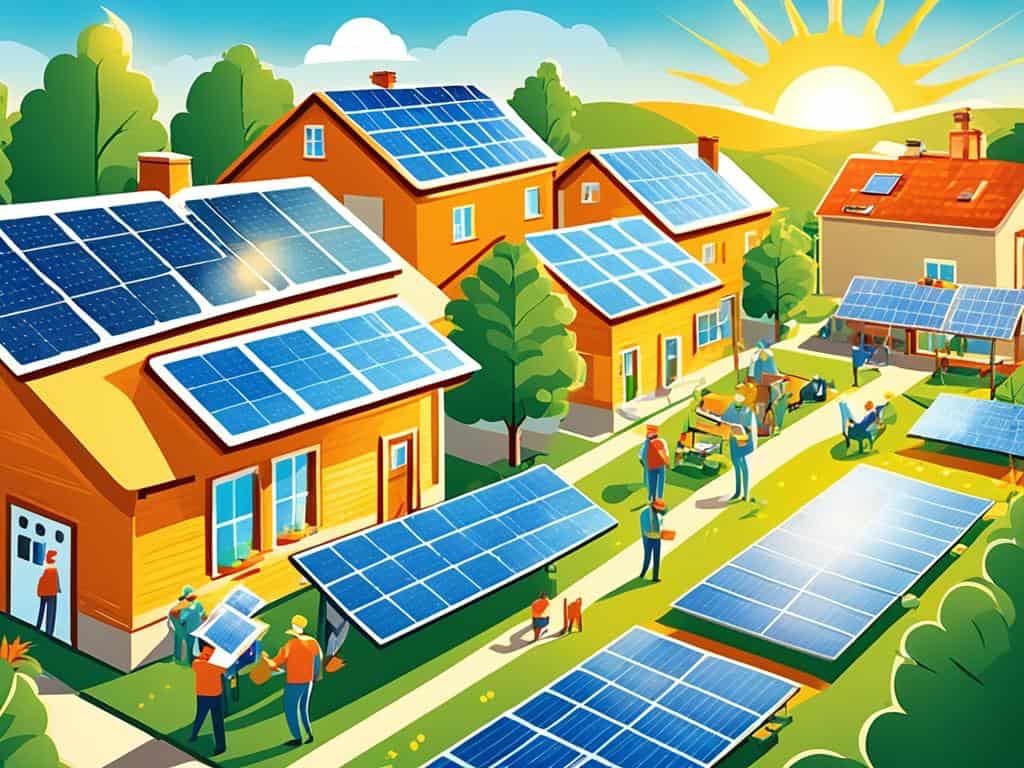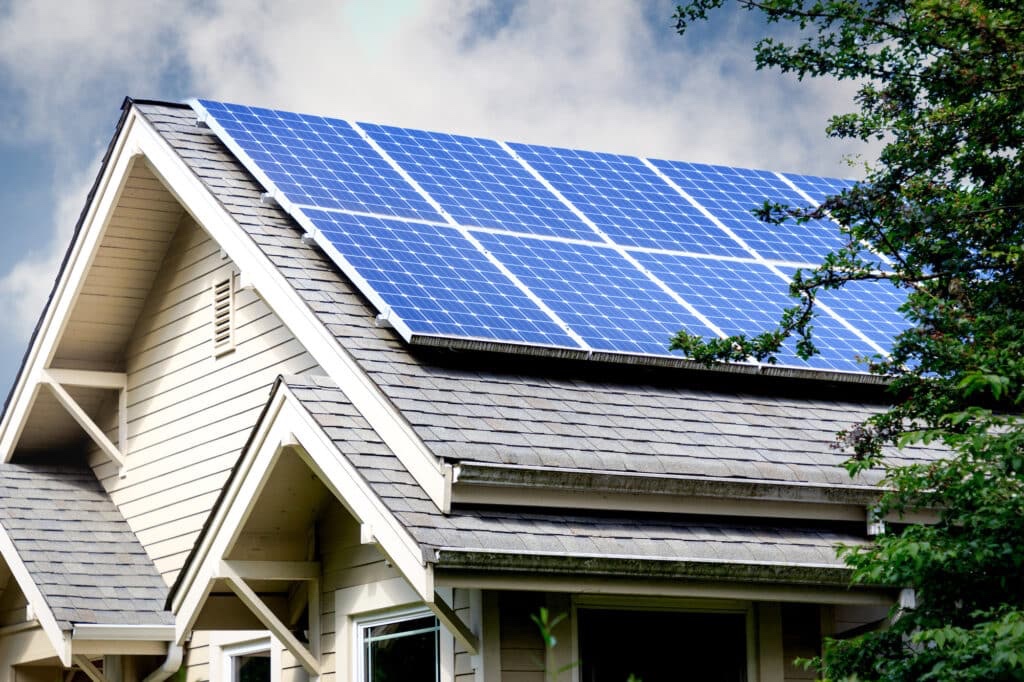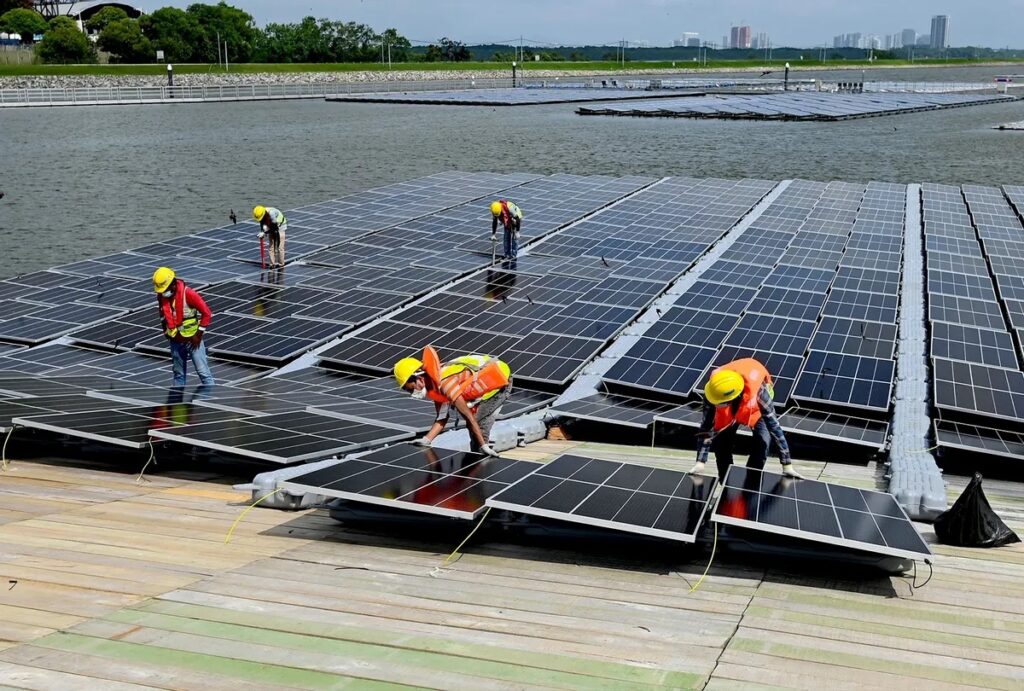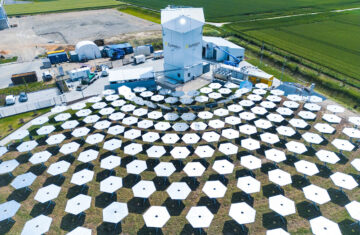The Remarkable Advantages of Solar Energy
Advantages of solar energy – Solar power has emerged as one of the most sustainable and promising forms of renewable energy in a short amount of time. The benefits of solar energy are becoming more and more clear as the globe moves closer to clean energy sources. We will examine the top ten benefits of solar energy in this extensive post, which make it an appealing option for both people and communities.
1. Renewable and Inexhaustible

The sun, which is a renewable energy source that will last for billions of years, is the source of solar energy. The sun’s energy is limitless, in contrast to fossil fuels, which have limited supply. This means that future generations will have a steady and sustainable source of power.
Reduced Reliance on Finite Resources
Advantages of solar energy – The fact that solar energy lessens our dependency on finite resources like coal, natural gas, and oil is one of its main benefits. Solar energy provides a practical substitute that can aid in our transition to a more sustainable future as these conventional energy sources grow more expensive and scarce.
Environmentally Friendly
When solar energy is generated, no greenhouse gases or other pollutants are released into the atmosphere, making it a clean and renewable energy source. This makes it a decision that is kind to the environment and advances the cause of combating climate change by lowering our carbon footprint.
2. Cost-Effective in the Long Run

Solar energy systems can have a hefty upfront cost, but they also offer substantial long-term cost savings. In the long run, solar energy is a cost-effective solution since, once installed, there are little ongoing operational and maintenance costs and the energy produced is practically free.
Reduced Electricity Bills
Homeowners and businesses can protect themselves from rising energy costs and drastically lower their electricity bills by producing their own electricity. The money saved can be put back into other areas, improving the household’s or business’s overall financial health.
Government Incentives and Subsidies
To promote the use of solar energy, numerous governments provide a range of incentives and subsidies worldwide. A greater range of consumers will be able to afford and have greater access to solar energy thanks to these, which can include tax credits, rebates, and other financial incentives that help defray the initial installation costs.
3. Diverse Applications

Solar energy has a wide range of applications, from small-scale residential systems to large-scale solar farms that power entire communities. Solar energy can be used for both residential and commercial purposes, and in a range of settings, including urban centers and rural areas, thanks to its versatility.
Powering Remote Locations
Advantages of solar energy – The capacity of solar energy to supply electricity in isolated areas without connection to the conventional electrical grid is one of its main benefits. Because of this, solar energy is a great option for supplying electricity to off-grid dwellings, distant telecom towers, and other infrastructure in places with spotty or nonexistent grid connectivity.
Scalable and Modular
Advantages of solar energy – Solar energy systems can be easily scaled up or down to meet the specific energy needs of a household, business, or community. Because of its modularity, the solar system can be customized to meet the unique energy needs of the user, resulting in a more effective and efficient energy solution.
4. Increased Property Value

The value of a property can rise considerably with the installation of a solar energy system. Due to the long-term financial savings and environmental advantages that solar panels offer, buyers are frequently willing to pay a premium for homes that have them.
Enhanced Resale Potential
Advantages of solar energy – Houses that have solar energy systems installed typically sell for more money than those that don’t. When the time comes to sell the property, solar energy will be a profitable investment because of this.
Reduced Maintenance Requirements
Advantages of solar energy – Solar energy systems are relatively low-maintenance, with few moving parts and minimal upkeep required. This lowers the system’s ongoing maintenance expenses, which raises the long-term cost-effectiveness of solar energy even more.
5. Energy Independence and Security

One of the significant advantages of solar energy is its ability to provide energy independence and security. Individuals and communities can lessen their reliance on centralized energy grids and the associated price fluctuations in energy by producing their own power.
Reduced Vulnerability to Grid Disruptions
Advantages of solar energy – In the event of grid failures or blackouts, solar energy systems, particularly those with integrated energy storage, can continue to provide power. When access to traditional electricity sources may be disrupted due to natural disasters or other emergencies, this increased energy security can be especially crucial.
Diversification of Energy Sources
As solar energy becomes more widely used, it helps to diversify energy sources and lessens dependency on one or a small number of major energy providers. The energy system becomes more resilient and reliable overall as a result of this diversification, making supply chain problems and disruptions less likely to occur.
6. Quiet and Silent Operation

Solar energy systems, particularly rooftop solar panels, operate silently without producing any noise. Because of this, they are the perfect option for urban and residential environments where noise pollution may be an issue.
Minimal Noise Pollution
Advantages of solar energy – Solar energy systems do not contribute to noise pollution because they have no moving parts and operate quietly, making the surrounding area more tranquil for people who live or work there.
Unobtrusive Aesthetic
Solar panels are an unobtrusive and aesthetically pleasing addition to the landscape because they can be made to blend in seamlessly with a building’s architectural style. This helps allay worries about how solar energy systems will look, especially in residential or historic districts.
7. Job Creation and Economic Development

Numerous jobs in manufacturing, installation, maintenance, and research and development have been created as a result of the solar energy industry’s growth.
Boost in Local Employment
Advantages of solar energy – Skilled labor is needed for the installation and upkeep of solar energy systems, which can result in the creation of local jobs and business opportunities, especially in places where the solar energy sector is strong.
Stimulation of the Local Economy
By using local suppliers and contractors for materials, tools, and services, solar energy project investments can also boost the local economy.
8. Reduced Water Consumption

Solar energy generation uses very little water, unlike traditional power plants that rely on water-intensive cooling systems. This makes it an environmentally friendly option, particularly in areas with scarce water resources.
Conservation of Water Resources
Advantages of solar energy – Solar energy systems use less water, which contributes to the preservation of precious water resources. This is especially crucial in dry or water-scarce areas.
Compatibility with Arid Climates
Solar energy systems can thrive in arid and semi-arid climates, where they can provide a reliable source of power without competing with other water-dependent activities, such as agriculture.
9. Adaptability and Flexibility

Solar energy systems can be customized to meet the unique energy requirements of a wide range of applications because of their high degree of adaptability and flexibility.
Scalable and Modular Design
Advantages of solar energy – Solar energy systems are appropriate for both large-scale commercial or utility-scale projects as well as small-scale residential use because of their modular design, which makes capacity expansion or reduction simple.
Off-Grid and On-Grid Capabilities
Solar energy systems can be set up to run in both on- and off-grid environments, offering energy solutions for a range of situations and places, from rural areas to populated cities.
10. Improved Public Health and Environmental Benefits

There are major environmental and public health benefits to the broad use of solar energy, which will lead to a cleaner and healthier future.
Reduced Air Pollution
Advantages of solar energy – Solar energy systems do not release any dangerous air pollutants, such as sulfur dioxide, nitrogen oxides, or particulate matter, which can have a negative impact on both human health and the environment, because they generate electricity without burning fossil fuels.
Mitigation of Climate Change
For the benefit of present and future generations, switching to solar energy and other renewable energy sources is essential for lowering greenhouse gas emissions and lessening the effects of climate change.
In summary, there are many benefits associated with solar energy, from its cost-effectiveness and renewable nature to its wide range of uses and favorable effects on the environment and public health. The use of solar energy will surely be essential in forming a more resilient and sustainable energy future as long as the world keeps emphasizing sustainable energy solutions.
Advantages of solar energy – The widespread use of solar energy has the power to revolutionize the production and consumption of electricity, opening the door to a more just and sustainable future. The benefits of solar energy, which range from cost-effectiveness and environmental benefits to enhancing energy security and promoting economic development, will become more apparent as the technology advances and becomes more widely available. We can all work together to create a world that is healthier, cleaner, and more resilient for future generations if we embrace the power of the sun.



